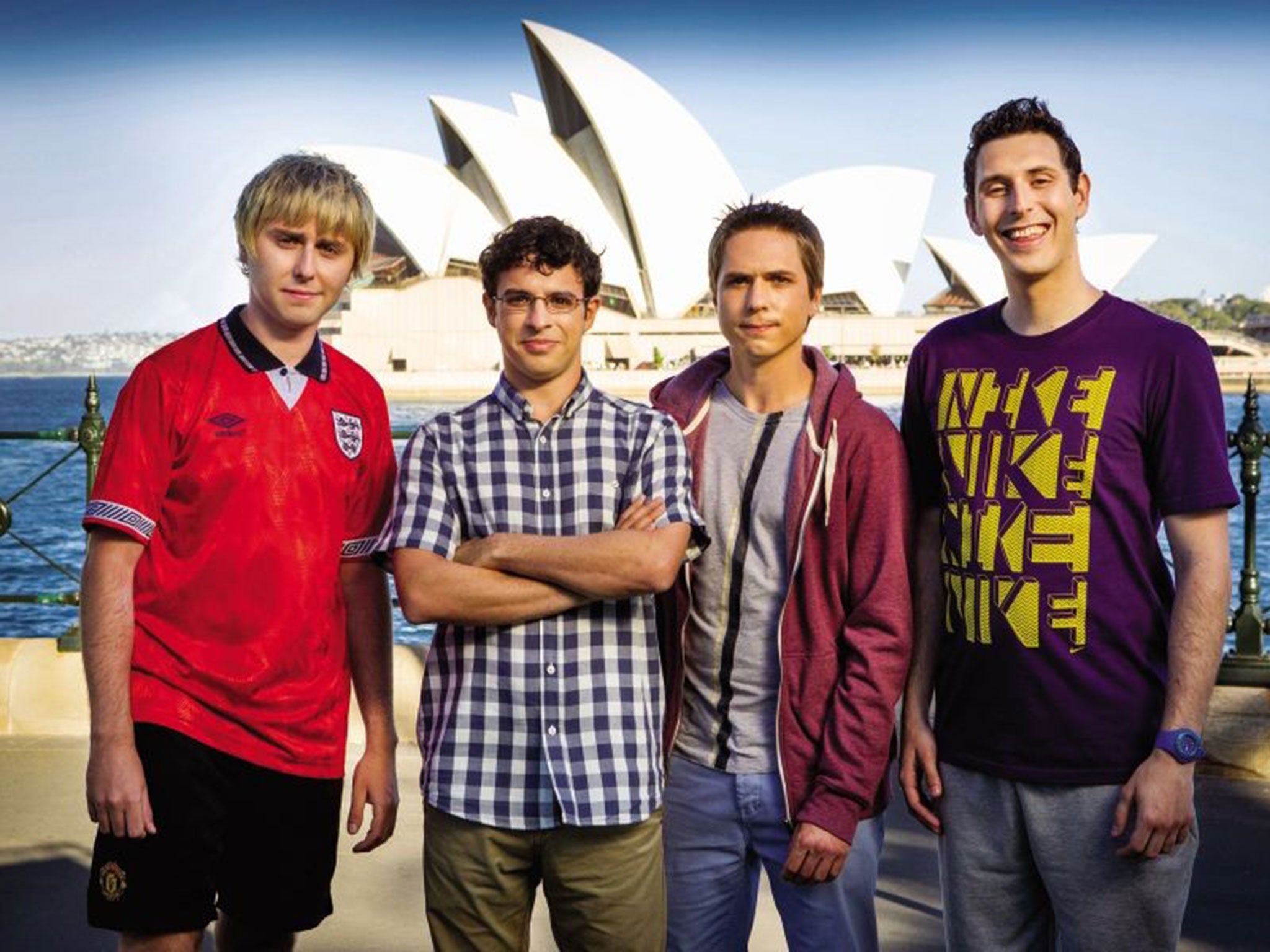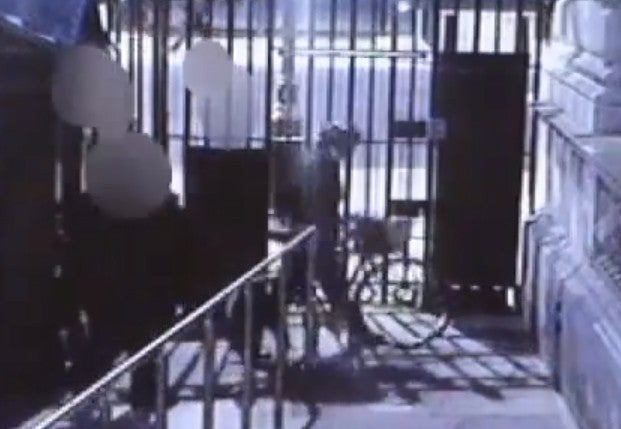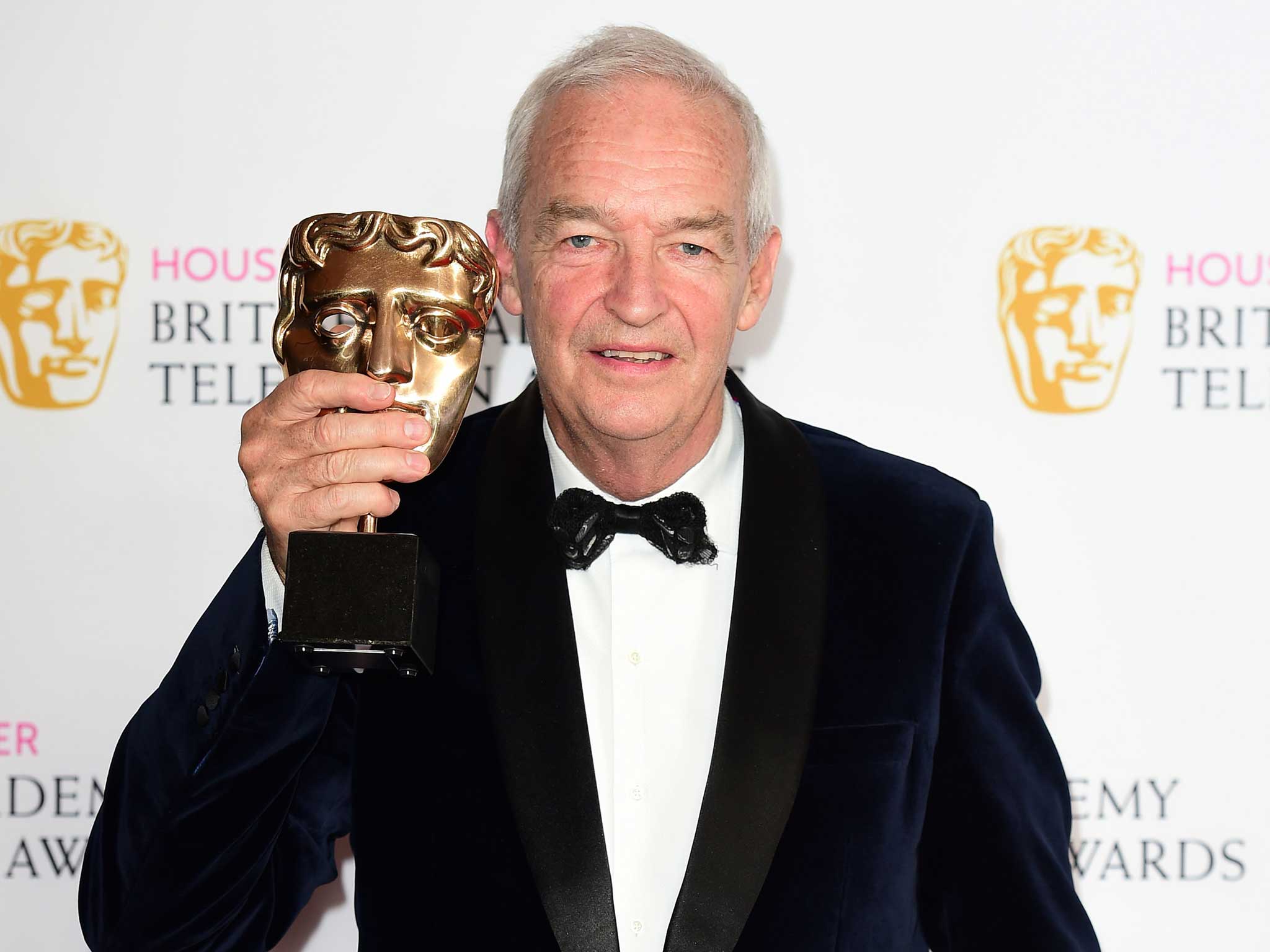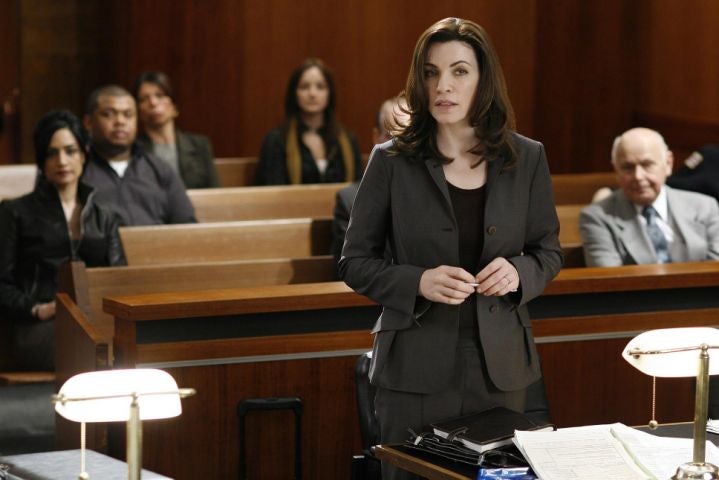If Channel 4 didn’t exist, you couldn’t invent it
With the future of the BBC in the spotlight, we should not forget that the Government also intends to privatise its younger rival. But such a move would jeopardise a truly uniquely British thing: a hodge-podge that works

Your support helps us to tell the story
From reproductive rights to climate change to Big Tech, The Independent is on the ground when the story is developing. Whether it's investigating the financials of Elon Musk's pro-Trump PAC or producing our latest documentary, 'The A Word', which shines a light on the American women fighting for reproductive rights, we know how important it is to parse out the facts from the messaging.
At such a critical moment in US history, we need reporters on the ground. Your donation allows us to keep sending journalists to speak to both sides of the story.
The Independent is trusted by Americans across the entire political spectrum. And unlike many other quality news outlets, we choose not to lock Americans out of our reporting and analysis with paywalls. We believe quality journalism should be available to everyone, paid for by those who can afford it.
Your support makes all the difference.Long ago and very far away, Jeremy Isaacs, the launch chief executive of Channel 4, came to a Guardian morning conference and talked about the high art and high ambition his new strand of public service would deliver. There’d be inspiring drama in King Lear’s top class. There’d be fine music and deep debate, plus mirrors held up to everyday life untainted by the stain of Hollywood. There would also – and I winced a little even then – be no sport. This seemed television nonpareil. And Jeremy had one still better surprise up his sleeve.
I’d sent Liz Forgan, our dynamic women’s editor, along to interview the emerging Isaacs. They’d got on so well that she came away with a good, informative article – and, rather to my chagrin, a job offer to boot. Liz, who’d arrived via the Tehran Journal, the Hampstead and Highgate Express and the London Evening Standard leader-writing room, thereupon departed to become a founding commissioning editor and then director of programmes at C4. That interview chance offer opened a whole new career. She went on to be head of network radio at the BBC, creating Five and making it live. She had the great good sense not to agree with John Birt when he shifted Radio 4’s Today programme and much else to White City, and could smile when – years later – the caravan trooped back to Portland Place. She became Dame Liz, chair of English Heritage then chair of the Arts Council; she was also chair of the Scott Trust, which benignly superintends The Guardian.
Why so much Forgan back history here, you wonder? Because, for me, amid all the twists, turns and altered trajectories, it mirrors what happened to Channel 4 itself. Nothing, from those first founding days, was quite delivered as expected. "No sport!" turned out to mean many afternoons spent racing from Wincanton, supplemented by the Grand National – and the Paralympic Games as well. We may talk about sacred missions and excellence, about artistic creativity and intellectual adventure: but the story of Channel 4 is far more of an exploration along a winding, rutted track.
It isn’t the vision sketched out in that Guardian editor’s office as the Eighties began (with Mrs T ruling a baleful roost). It is Gogglebox and Alan Carr; it is Embarrassing Bodies and Come Dine With Me; it is Kirstie and Phil, conservatory makeovers and Grand Designs; it’s a ragbag collection of good things, different things, formulaic things – but in no real sense things like they used to be or things as intended. But it’s also that uniquely British thing: a hodge podge that works, an institution you couldn’t invent because, somehow, it’s just grown. Topsy TV. Which, in a curious way, is why it’s so important and so threatened as another Conservative Government seeks to tear up the roots of governance, structure and opportunity that first gave it life.
Nothing about C4 and its burgeoning offspring – More4, E4, Film4 and the rest – quite makes sense. But then the choice of chief executives and chairs doesn’t make much sense either. Michael Grade succeeded Jeremy Isaacs: the bouncing, cheerful jack of all trades at the BBC and ITV served his time and saw the once-narrow vision broaden. Michael Jackson, the most feted TV executive of his generation, came next, before somehow disappearing amid canyons of American media. Then there was Mark Thompson, who came and went back to lead the BBC after a short exploratory while; followed by Andy Duncan, who marketed stuff for the corporation and wasn’t really a much of a creative hand at all. So to David Abraham, the smart ex-ad man who whipped up Dave and other reheated channels (and doesn’t mind taking an £800,000-plus salary if that’s what public service provides).

Is there any binding link along this passing parade of TV wizards, marketing magicians and simple ad blokes? For a while you might have sensed a BBC testing academy, a chance to show what you could do and explore new ideas before you went on to claim corporation acclaim. Maybe, too, the likes of Lord Attenborough as chair staked out a patch of elevated influence. But then came right-wing entrepreneurs and former Treasury mandarins, succeeded today by a onetime travel-trade boss who specialises in selling things (such as C4). The Government of the day, through Ofcom nomination, finds it easy to set the mood and the direction while crying “Look, no hands”. Independence for C4 is a four-syllable word without great meaning: and, meanwhile, the route back to the BBC appears to have lapsed. Jay Hunt arrived as the creative brain after a very distinguished time at BBC1. In other eras, you’d have expected her to return once the big jobs at Broadcasting House fell vacant. But no: Channel 4, in a way, is more isolated than ever before.
It depends on the commissioning structure that defines it. C4 buys what it needs from the indie sector. There’s no single button a director of programmes or departmental supremo can push. You’re dishing up a smorgasbord of this and that. You’re constructing a menu from what’s seasonably available, not deciding what must be done. That automatically makes channel identity difficult going on diffuse. King Lear turned out to have a Big Brother. Countdown sits oddly alongside Noel Edmonds opening boxes that may or may not make you rich. Can anyone coming to E4 or More4 afresh truly tell where their target audiences lie?
Of course the crown jewels of C4, liberally feted in polite liberal society, trail prestige and branding in their wake. An hour of news at 7pm with Jon Snow and co is a good deed in a bad world. Dispatches at its often-formidable best recalls the dear, dead, shit-stirring days of World in Action. The channel can seem more serious about news in depth than any of its British competitors. It can also, on occasion, show Panorama a clean pair of heels. There’s an almost tabloid challenge to documentary film-makers: come in, and kick over a few tables. But look at the ad breaks amid so much really good stuff. Channel 4 News often barely seems to take a break – and certainly raises scant reward. The money men want to flog their wares elsewhere. Branding is one thing: commerce, in this case, rather another.
The danger now – a danger inherent in semi-demi privatisation with Channel 4 sold to some professional private company bent on turning consistent profits while (an HMG condition of sale) agreeing to keep the totems of public service in place – is not that Snow, Matt Frei and Cathy Newman will be out of a job: they’ll be a protected species, the symbol of continuing devotion to the founding precepts. No: the threat is very different. It’s that the ragbag will be turned upside down; that the channel will become much more ruthlessly targeted, far keener on defining audience segments, far more anxious to hone an identity.
Think ITV1 or Channel Five. The backroom boys there know what works. They rarely take a chance. If Morse is dead, call Lewis: when Lewis grows too old, summon young Endeavour. What goes around Downton Abbey or Mr Selfridge comes around. What fills the waking and dozing hours of Five – NCIS meets CSI – means proven, predictable trips to the LA studio well. I’m a Big Brother Celebrity, Keep Me Warm in Here. No imagination or undue risks required.
Channel 4, to be sure, grinds out similar fodder year after year. Buying houses; choosing exotic villas in the sun; renovating either of the above; or going to Cornwall after all: you know which channel you’re watching the moment you hit the remote. The long, long Saturdays of nothing happening and nobody trying – except, perhaps, to win some bargain basement cookery competition – seem bent on audience repulsion. And yet somewhere amongst the rags at the bottom of the bag you’ll find something unexpected: The Inbetweeners, Peep Show, The Good Wife, Shameless, Father Ted, Time Team and a Friday night documentary that makes your heart stop. Nobody says that films or bought-in series can’t have subtitles: the iron rule that hobbled BBC2 for decades. Nobody seems to pencil out the gags on late game shows as too steamy for comfort. Who’s really going lose their wick over C4 freewheeling? Even the Daily Mail can’t raise much wrath these days.

Of course C4 could raise more ad money if it really concentrated. Of course the slightly haphazard feeling, the schedule of the good-natured shrug, could be polished into more concentrated life. Of course the actual amount of time and effort spent on political thought and political discussion is pretty derisory – one stream of public service nobody seems to get right. And of course – see the breakthrough that Richard Klein in his time as controller of BBC4 made when he started buying Scandi thrillers and opened up the rich cupboard of European TV drama – C4 can be a bit slow off the mark as well, launching its own European drama season a little on the late side.
We’re not talking crown jewels here. We’re often shambling around in search of a cutting edge. The most irritating experience on TV is stumbling on an old Grand Designs or Kirstie Allsopp and trying to puzzle out whether it was made in 2015 or 2005. Independent producers? You can have too much of a good thing, a mesh of formulas tying you down. Incisive schedule-making? Talk to some of those indie producers about the time it takes to get a commissioning decision.
Nothing in TV, as in life, is perfect. Channel 4 often falls very far short of perfection. But it’s absolutely not nurse, with something worse round the corner. It’s a human institution in a digitally drowned age. It is always likely to stumble on something wonderful. You couldn’t invent it because, in a sense, nobody did invent it. It is a training school for upwardly mobile TV executives and a refresher course for the jaded. It is a brilliant achievement and a continually missed opportunity. It could be in the vanguard of television’s move to conquer the web – or it may not notice anything’s happened until far too late.
The thesis in the trade is that not even Messrs Osborne or Whittingdale will privatise C4 successfully because the public service requirements will carve away at profit forecasts and desirability. In fact, I don’t think that’s such a problem: public service can be a few ticks in boxes – Snow and Frei at 40 minutes, not 55 – with much else seeping in around. The real test of survival is more important, and nebulous, than that.

Look, perversely perhaps, at the programme wealth of the Sky Arts channel. It’s almost what Jeremy Isaacs promised for C4 long, long ago. Not surprising, perhaps: the chairman of Sky Arts is a fantastic old chap called Jeremy Isaacs, and he’s an indefatigable champion of the good and the great. But what do you – an ordinary Joe, not extraordinary Jeremy – want to watch over supper on an average evening? A good bit of this and a great bit of that, a game with a laugh, a crude shock or two, and a shrewd slice of human experience: the kind of odd mix no Secretary of State shuffling his papers would prescribe. Only Channel 4 would have been imaginative enough, and free enough, to hire Liz Forgan on first acquaintance. Only C4 would have piled different talents and visions together with such insouciant abandon. Only C4 is shamblingly able to raise two fingers when an oppressive Government comes to call. An alternative definition of public service we all need.
So ask the question you’ll never find in one of Noel Edmonds’s boxes: who or what is Channel 4 for? Answer: it’s not for burning.
This is an edited extract from ‘What Price Channel 4?’ (Abramis, £19.95), a collection of essays edited by John Mair, Fiona Chesterton, David Lloyd, Ian Reeves and Richard Tait. The book is published on 7 June, but is now available to Independent readers at a special price of £15. Email richard@arimapublishing.co.uk for details, putting ‘Independent offer’ in the subject field
Join our commenting forum
Join thought-provoking conversations, follow other Independent readers and see their replies
Comments